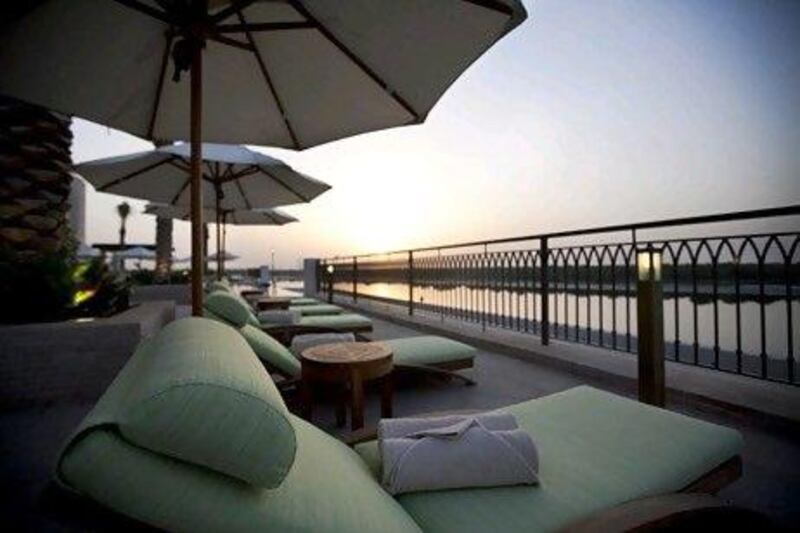Standing at the back of the building at the side of a main road in the capital, it is hard to see how this hotel earned its name.
But as you walk out through the front doors and spot the kilometres of mangrove trees stretching out in front of you, it all becomes clear.
Eastern Mangroves Hotel & Spa by Anantara, which celebrated its official opening last week, showcases one of the capital's environmental treasures.
The property is one of a number of developments built by the Tourism Development and Investment Company (TDIC) along Abu Dhabi's coast to take advantage of the emirate's impressive scenery.
TDIC has said it is committed to developing destinations that protect and enhance their surrounding natural environments.
It removed about 1,000 trees from the Eastern Mangroves area but it has planted 60,000 seedlings in the channel in front of the hotel.
UAE University monitored the mangroves and water quality during the construction phase to make sure the works did not impact the delicate ecology of the area.
And TDIC has since introduced a ph-balanced reef into the channel using a technology developed in Venice to encourage marine life.
"We are very happy because we see the birds coming back, the flamingos coming back," says Michel Koopman, the director of operations for the Middle East at Anantara and the property's general manager.
"Of course, anywhere you have a construction site there is a little bit of a conflict," he adds.
For its part, the hotel has banned jet skis and is looking into using electric boats to limit noise pollution.
"It will be very environmentally friendly. We will do our kayaking with Noukhada. We have our upstanding paddle so we get fit," says Mr Koopman.
"We really want to make sure we become a part of the whole mangrove feel," he adds.
The hotel serves food in the pool area on special salt bricks - a reference to the mangrove, which grows in saltwater.
Mangroves even feature in the back panels of the bed headboards, in corridor carpets and in art dotted around the hotel.
"For us, mangroves are our hotel," says Mr Koopman.
"We have a special spa treatment where we use salt from the mangroves. There are a lot of things happening and we are still working on them," he adds.
Further up the road on Saadiyat Island, TDIC created a "mangrove nursery".
"To date, over 400,000 mangrove seedlings have been planted on Saadiyat Island and the success of the nursery has allowed a significant number of mangrove seedlings to be donated to other projects in Abu Dhabi," said a spokesman for TDIC.
However, mangroves were not the company's only concern on Saadiyat - the island is used as a nesting ground by hawksbill sea turtles.
Turtles hatch under the sand and instinctively head towards the sea but lights and noise can easily distract them, so TDIC had to put a plan in place to ensure they would be protected during construction.
As part of that, the company's environmental affairs team put together a set of guidelines for contractors working during the nesting season, which runs from late March until September.
They included a ban on flood-lighting and the placing of obstacles on the beach. But as residents have moved in, TDIC has had to change tack.
"An educational campaign regarding hawksbill turtles has started, to inform both residents and visitors on these special creatures, and the importance of protecting their nesting grounds," said the TDIC spokesman.
"This is by using educational signage and information leaflets at the hotels and clubs to promote the protection of the turtles," he added.
twitter: Follow and share our breaking business news. Follow us
iPad users can follow our twitterfeed via Flipboard - just search for Ind_Insights on the app.






